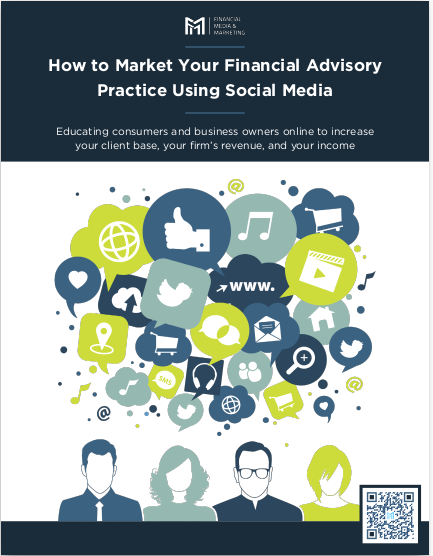Key Takeaways
-
Your online reputation can make or break your success as a financial advisor. Avoiding common pitfalls ensures credibility and trust.
-
Consistency, transparency, and responsiveness are essential for maintaining a strong professional image in 2025.
The Hidden Dangers That Can Destroy Your Reputation Overnight
You’ve worked hard to build your career, grow your client base, and establish yourself as a trusted expert. But one wrong move can seriously damage your reputation—and in the digital age, bad news spreads fast. If you want to keep your professional credibility intact, steer clear of these six reputation-killing mistakes that financial advisors are making right now.
1. Ignoring Negative Reviews or Failing to Address Client Concerns
Let’s be real: no matter how good you are at your job, negative feedback is inevitable. But what matters most is how you handle it. Many advisors either ignore negative reviews or respond defensively, both of which can worsen the damage.
What You Should Be Doing:
-
Respond Promptly and Professionally: Acknowledge concerns, offer solutions, and show that you value client feedback.
-
Take It Offline: If possible, resolve issues privately via phone or email rather than engaging in a public debate.
-
Encourage Positive Reviews: A steady stream of positive testimonials can outweigh occasional criticism.
Ignoring reviews makes it seem like you don’t care, while defensive responses can make you appear unprofessional. Handle criticism gracefully, and you’ll come across as a responsive and trustworthy advisor.
2. Overpromising and Underdelivering
Making big promises to attract clients might seem like a good idea, but failing to follow through will eventually catch up with you. When expectations aren’t met, your credibility takes a major hit, leading to lost clients and damaging word-of-mouth.
How to Maintain Trust:
-
Set Realistic Expectations: Be upfront about potential risks, returns, and timelines.
-
Underpromise and Overdeliver: It’s always better to exceed expectations rather than disappoint clients.
-
Communicate Proactively: If market conditions change or unforeseen challenges arise, keep your clients informed.
Transparency is key. Being honest from the start strengthens trust and prevents disappointment down the road.
3. Failing to Maintain an Updated and Professional Online Presence
Your digital footprint speaks volumes about your expertise and professionalism. If your website, social media profiles, or online listings are outdated, inactive, or filled with inconsistent information, potential clients may think twice before trusting you with their financial future.
Steps to Improve Your Online Presence:
-
Keep Your Website Updated: Ensure your contact details, services, and credentials are current.
-
Stay Active on Social Media: Regularly share insights, industry updates, and client-focused content.
-
Maintain Consistency: Your brand message, tone, and professionalism should remain uniform across all platforms.
An outdated online presence makes you look disengaged. Keeping things fresh and consistent reassures potential clients that you’re actively involved in your field.
4. Lack of Transparency in Fees and Services
Hidden fees and vague pricing structures are red flags for clients. If they feel misled about what they’re paying for, trust is instantly broken. Clear, upfront communication about costs helps you maintain integrity and avoid disputes.
Best Practices for Transparency:
-
Clearly Outline Fees: Whether you charge hourly, commission-based, or flat fees, be upfront about your pricing model.
-
Explain Your Services in Detail: Clients should know exactly what they’re paying for and what’s included.
-
Provide Written Agreements: Always put pricing and service details in writing to prevent confusion later.
In 2025, consumers value financial advisors who are transparent. If they feel like you’re hiding something, they’ll quickly take their business elsewhere.
5. Being Unresponsive to Clients and Leads
Clients expect quick responses—especially in today’s fast-paced, digital-first world. Delayed replies, missed calls, or ignoring messages can lead to frustration, loss of trust, and ultimately, lost business.
How to Improve Responsiveness:
-
Use Automated Systems: Set up autoresponders or chatbots to acknowledge inquiries immediately.
-
Prioritize Follow-Ups: Even if you don’t have an immediate answer, let clients know you’re working on it.
-
Be Accessible Across Channels: Clients should be able to reach you via phone, email, and social media.
If you consistently fail to respond in a timely manner, clients may assume you don’t value their business—and they won’t stick around for long.
6. Ignoring Compliance and Ethical Standards
The financial industry is heavily regulated, and failing to comply with rules and ethical guidelines can have severe consequences. A single compliance violation can result in legal action, fines, and irreparable damage to your reputation.
How to Stay Compliant and Ethical:
-
Stay Updated on Regulations: Laws and industry standards change, so continuous education is essential.
-
Disclose Conflicts of Interest: Be transparent about any potential biases in your financial recommendations.
-
Avoid High-Pressure Sales Tactics: Clients should feel confident, not coerced, in their financial decisions.
Cutting corners might seem tempting, but the long-term risks far outweigh any short-term gains. Integrity and ethical practices will always set you apart from competitors who prioritize profits over client well-being.
The Bottom Line: Your Reputation Is Your Most Valuable Asset
Your reputation can take years to build but only minutes to ruin. Whether it’s through poor communication, lack of transparency, or outdated online presence, the mistakes covered in this article can seriously damage your credibility. The good news? All of these issues are fixable—if you take action now.
A strong, trustworthy reputation is the foundation of a successful financial advisory career. By staying responsive, transparent, and ethical, you’ll not only protect your brand but also attract more loyal clients in 2025 and beyond.










